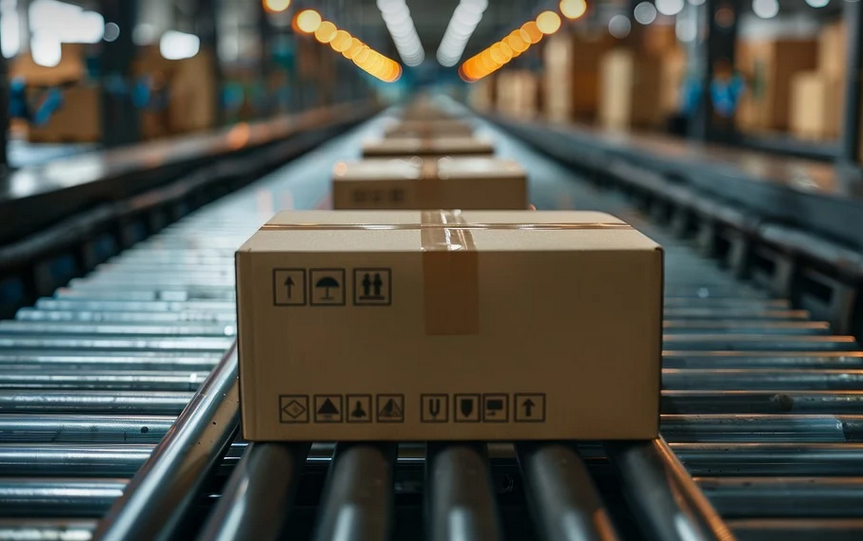Sustainability In Business: A Growing Trend In 2024

Understanding the Why of Going Green
Sustainability isn’t just a buzzword; it’s a vital shift in how businesses operate and contribute to the planet. In 2024, we see more companies embracing its principles than ever before. The reasons for this are clear: a growing awareness of climate change, resource depletion, and environmental degradation are pushing organizations to take responsibility. Consumers, too, are increasingly demanding eco-conscious practices from businesses they support.
Imagine a world where your favorite brand is not only making products you love but also actively working to protect our planet. This is what sustainability in business aims for: minimizing environmental impact while maximizing social and economic value. It’s about finding solutions that benefit everyone – people, communities, and the planet.
What Does Sustainable Business Mean?
Sustainability encompasses a wide range of practices and goals. Some key areas include:
- Environmental Protection: This focuses on minimizing waste, reducing emissions, conserving water, and protecting biodiversity. It’s about the energy sources used in production, transportation processes, and waste disposal.
- Social Responsibility: This involves fostering a fair and inclusive workplace, promoting ethical sourcing practices, and supporting local communities. It’s about ensuring that businesses treat their employees fairly, invest in community development projects, and prioritize diversity and inclusion.
- Economic Viability: This focuses on creating long-term value for stakeholders through sustainable business models. It means generating revenue, building resilience against economic shocks, and investing in innovation to create a more prosperous future.
The Business Case for Sustainability
Beyond the altruistic reasons, sustainability offers immense benefits to businesses themselves:
- Reduced Costs: Efficiency gains through resource optimization and renewable energy can significantly lower operational costs. For instance, switching to solar panels can reduce reliance on expensive fossil fuels.
- Enhanced Brand Image: Consumers are more likely to choose brands they trust and believe in. Sustainable practices enhance a company’s reputation, attracting eco-conscious consumers who value ethical business models.
- Improved Employee Engagement : A sense of purpose drives employee motivation. When employees feel good about working for an environmentally responsible company, their engagement increases.
- Attracting Investors and Financing Opportunities: The ESG (Environmental, Social, Governance) market is booming. Sustainable businesses receive increased interest from investors who seek to support organizations committed to positive change.
Real-World Examples of Sustainability in Business
Many companies are leading the way in sustainable business practices. Here are a few examples:
- Patagonia is known for its commitment to environmental activism and use of recycled materials in its clothing. It’s also focused on fair labor practices, which resonates with consumers who want their purchases to align with their personal values.
- Unilever has set ambitious sustainability goals across its entire supply chain, focusing on responsible sourcing, reducing greenhouse gases, and promoting sustainable packaging solutions.
- **IKEA** is transforming its supply chain to use renewable materials and reduce waste. It’s also exploring initiatives like “Circular Economy” that focus on minimizing resource extraction and maximizing product lifespan.
Getting Started with Sustainable Business Practices
If you’re thinking about implementing sustainable practices, don’t feel overwhelmed! Start by considering these steps:
- Assess your current impact: Understand your company’s environmental footprint, social responsibility, and economic viability. Use tools and resources to measure your progress.
- Set realistic goals and timelines: Start small with achievable targets. Aim for incremental improvements rather than trying to overhaul everything at once, as it can be discouraging and unsustainable in the long run.
- Collaborate and learn from others: Connect with other businesses, industry associations, or sustainability experts to share best practices, stay informed about new technologies, and gain valuable insights.
- Embrace transparency and reporting: Share your progress openly with stakeholders. Transparency builds trust and shows commitment to sustainable business practices.
The Future of Sustainability in Business
As technology advances and consumer awareness grows, sustainability will continue to play a pivotal role in the future of businesses. We’ll likely see:
- Increased adoption of circular economy models: This means creating products and systems designed for reuse, repair, and recycling, minimizing waste.
- Advancements in clean technologies and renewable energy: The race to reduce carbon emissions will continue, leading to innovation in solar panels, wind turbines, biofuels, and other sustainable energy solutions.
- More focus on corporate social responsibility (CSR): Businesses will be increasingly held accountable for their impact on society, focusing on fair labor practices, ethical sourcing, and community development.


